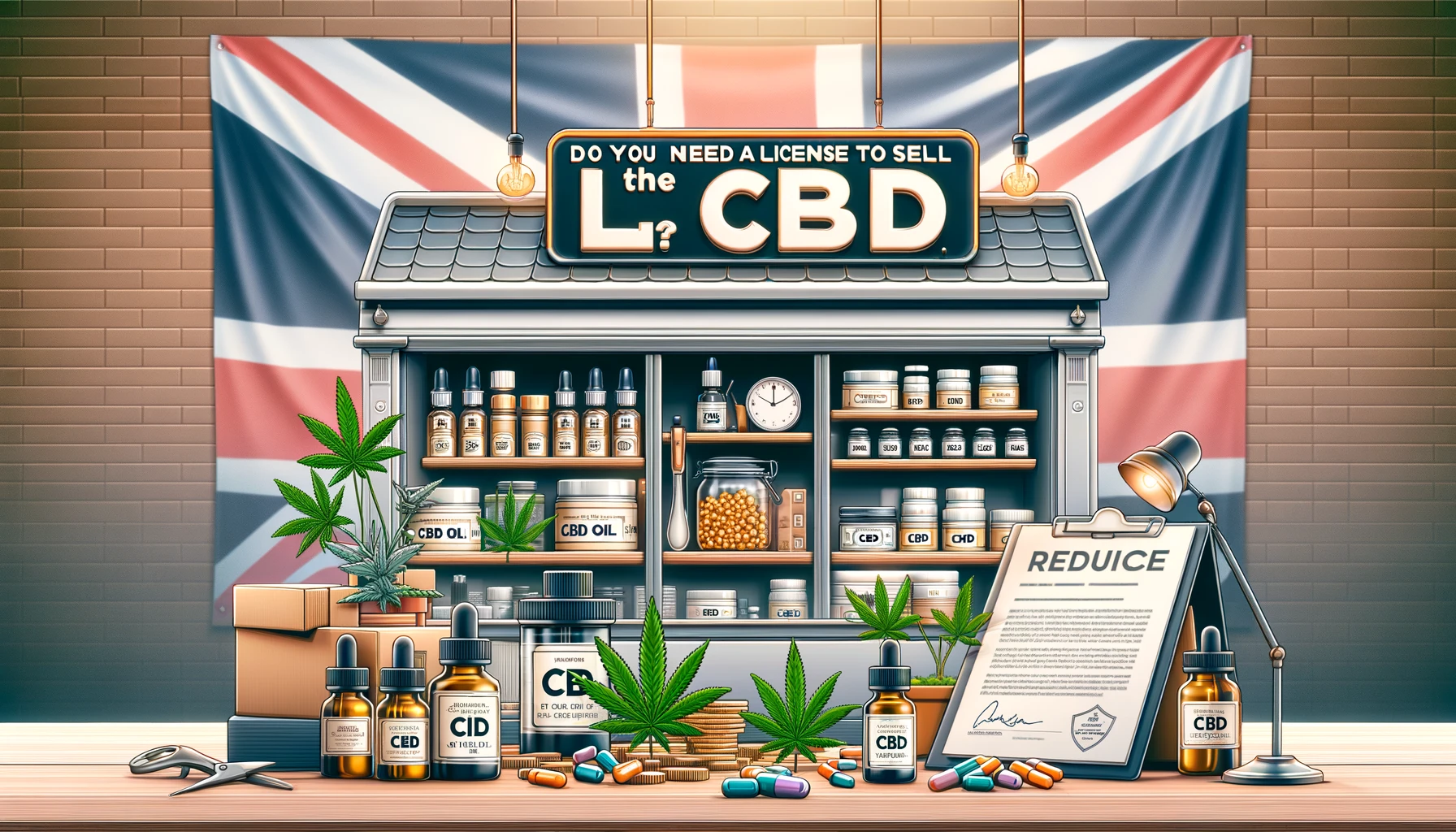1. Introduction
In the United Kingdom, the CBD (Cannabidiol) market has witnessed rapid growth, with a wide array of products flooding the market. Despite its popularity, there is confusion and uncertainty regarding the legalities of selling CBD. This article aims to clarify whether selling CBD in the UK requires a license and the legal framework governing its sale.
2. Understanding CBD
Definition and Types of CBD Products
CBD is a non-psychoactive compound extracted from the hemp plant, a variety of Cannabis sativa. It comes in various forms, including oils, edibles, creams, and capsules.
Distinction Between CBD and Other Cannabis Products
Unlike THC (Tetrahydrocannabinol), the psychoactive component in marijuana, CBD is not intoxicating. This distinction is crucial in understanding its legal status.
General Uses and Popularity in the UK
CBD is popular for its alleged health benefits, such as pain relief, anxiety reduction, and improved sleep. Its growing use in wellness and medical products has contributed to its market popularity in the UK.
3. Legal Framework for Selling CBD in the UK
Overview of Relevant Laws and Regulations
In the UK, CBD products are legal provided they meet specific criteria, including low THC content. The legal landscape is governed by various laws and regulatory bodies.
The Role of the Food Standards Agency (FSA)
The FSA plays a significant role in regulating CBD products, especially those classified as novel foods. This includes overseeing product safety and compliance.
Novel Food Authorization for CBD Products
For a CBD product to be legally sold in the UK, it must be approved as a novel food by the FSA. This process involves rigorous testing and evidence submission to demonstrate safety.
4. Licensing Requirements
Specific Licenses Required for Selling CBD
To legally sell CBD products in the UK, businesses may need to obtain specific licenses, particularly if they involve the cultivation of hemp or the extraction of CBD.
Criteria and Process for Obtaining a License
The process for obtaining a license involves compliance with various criteria, including adherence to THC limits and quality control standards.
Regulations for Importing and Manufacturing CBD Products
For businesses importing or manufacturing CBD products, additional regulatory requirements must be met, to ensure product compliance with UK laws.
5. Compliance and Quality Control
Ensuring Product Quality and Safety
Sellers must ensure that their CBD products meet quality and safety standards, including accurate labeling of CBD content and freedom from contaminants.
Labeling and Marketing Regulations
Labeling regulations are strict, requiring transparency about ingredients, CBD concentration, and health claims. Misleading marketing is prohibited.
Compliance with THC Limits and Other Standards
CBD products must contain less than 0.2% THC to be legal. Sellers must ensure compliance with this and other standards set by regulatory bodies.
6. Challenges and Considerations for Sellers
Navigating the Legal and Regulatory Landscape
Sellers must stay informed about the evolving legal landscape, and understand the nuances of CBD regulations in the UK.
Understanding the Market and Consumer Demand
Understanding consumer demand and market trends is crucial for successful CBD sales. This includes awareness of product preferences and purchasing behavior.
Potential Legal Risks and How to Mitigate Them
Sellers must be aware of potential legal risks, including selling non-compliant products. Risk mitigation involves staying updated with legislation changes and seeking legal advice.
7. Future Outlook and Changes in Legislation
Recent Developments in CBD Legislation
The legal framework for CBD in the UK is evolving, with recent changes focusing on consumer safety and product quality.
Predictions for Future Regulatory Changes
Predictions suggest a trend towards stricter regulations, particularly in terms of product quality and safety standards.
Impact on Current and Prospective Sellers
These changes will impact both current and prospective sellers, necessitating adjustments in business models and compliance strategies.
8. Conclusion
Understanding the legal requirements for selling CBD in the UK is crucial for anyone looking to enter this market. While the sector offers significant opportunities, it is governed by a complex regulatory framework that requires careful navigation.
9. Frequently Asked Questions (FAQs)
- Do I need a special license to sell CBD edibles in the UK?
- Yes, selling CBD edibles in the UK requires compliance with novel food regulations, which may involve obtaining specific authorization.
- Can I sell CBD products imported from outside the UK?
- Yes, but imported products must comply with UK regulations, including THC limits and novel food requirements.
- What happens if I sell CBD products that don’t meet UK legal standards?
- Selling non-compliant CBD products can lead to legal penalties, including fines and product seizures.

Meet the CBDOilWow Editorial Team, a collective of CBD experts dedicated to unraveling the world of cannabidiol. With a passion for wellness and a commitment to providing the latest insights, they serve as your trusted guides in exploring the potential of CBD, ensuring you make informed choices for a healthier, more balanced life.

Leave a Reply